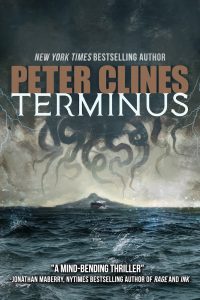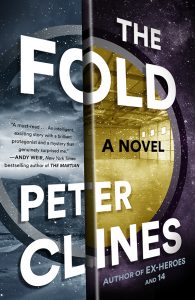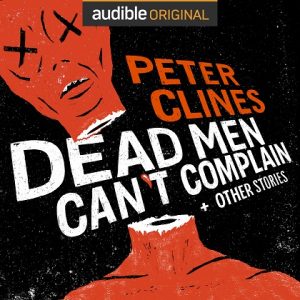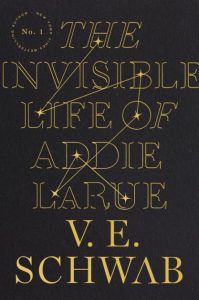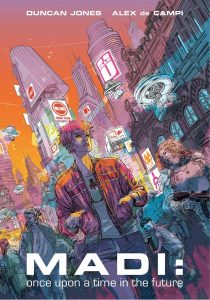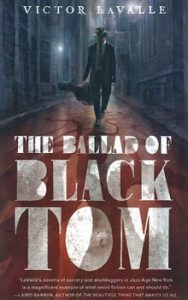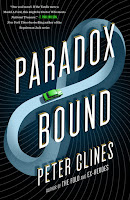I’d like to start by telling you about my one of my favorite film edits of all time. Top five, easy. It’s a single, straight cut between one scene and the next and it’s beyond brilliant. There’s a simply unbelievable amount of character and plot development in it. No joke, it’s a level of storytelling that most filmmakers and authors (self included) don’t have a prayer of ever achieving. I say this with complete and utter sincerity.
And Sam Raimi did it in a Spider-Man movie.
You probably know the moment. Struggling student/ photographer/ superhero (shhhhh) Peter Parker has just been introduced to physicist/ genius/ role model Otto Octavius. Otto takes a moment to criticize Peter for his laziness, but they warm up to each other as Peter makes some insightful observations about Otto’s new fusion reactor. Then Peter asks a question and Otto answers it as they finish off dinner at Otto and Rosie’s apartment later that night.

D’you know that moment? Seriously, go watch it if you don’t. Alfred Molina’s freakin’ amazing as Doctor Octopus.
Anyway, point is, we instantly know what happened during that cut. All of it. We understand how the discussion went. How they ended up back here. How their views of each other have changed over the past few hours. Yeah, it’s clearly been hours and we all know exactly what happened during them.
And just to be clear for those of you who might like to look down on superhero movies, none of this is because of pre-existing knowledge. Raimi and screenwriter Alvin Sargent were going in an all-new direction with Otto’s backstory and how it overlapped with Peter’s. They’d never been seen in this way before.
How many pages of storytelling did they fit into that cut?
Maybe a better way to look at it is, how many script pages did the movie not need because of that cut?
Truth is, most of us are pretty smart. We can figure out what goes between A and C. And between X and Z. As writers, we don’t always need to fill in every detail. Especially all the boring details. There’s lots of stuff we can skip over without hurting our story in the slightest. In a lot of cases, it’ll even make our story better.
I think this works on both a micro and a macro level. On the micro level, I’m talking about clauses and sentences and maybe paragraphs. I’ve talked in the past once or thrice about trimming away excess details. Steps in the process. Parts of the routine. Things the majority of readers will figure out happened. To put it another way, the thing that happens between A and B.
On the macro level, I’m talking about scenes or story beats or maybe even whole chapters. It’s the same idea as the micro, except we (the writers) have taken it even further, adding more details and nuance to what was already… well, unnecessary details. I’ve cut multiple pages and even whole chapters out of manuscripts once I realized the whole thing was a beautifully rendered and detailed scene that ultimately just wasn’t necessary.
And I’m sure someone just read that and said “whoa whoa WHOA! What about the art?! If that chapter’s beautifully written, isn’t that reason enough for it to be in the book?”
Well… no, to be honest. Don’t get me wrong. I love a beautiful turn of phrase or exquisite prose as much as the next guy. Probably more. I’ve read some things where other writers choose the absolutely perfect word or come up with a beautiful description and all I can say is “goddamn.” And sometimes “I’m jealous as all hell.”
The catch, of course, is those words are all describing something that needs to be in the story. It’s an aspect of writing I’ve mentioned once or thrice before. Just because something’s good doesn’t necessarily mean it’s good for my book. Something can be fantastic and still just not belong in there. For any number of reasons.
F’r example, one or two of you may have read a book called Paradox Bound. And you may have heard that, in the first draft my editor saw, I had a full chapter describing Eli’s bus trip across America after he flees the Faceless Men. It was about seven or eight single-spaced pages. And it was about Eli seeing the bigger world for the first time. The assorted people on the bus. The places they briefly stopped. The food he ate for a three day bus-ride, Sleeping sitting up. Wearing the same clothes for three days. And some clever observations about life and humanity and mass transit scattered in there too.
But ultimately, when viewed as part of the whole story, absolutely none of this mattered. It was about Eli getting on a bus in Boston and getting off a bus in Pasadena. All that quiet stuff in between… well, you would’ve just assumed most of that happened. Seriously. What else would he do on a bus for three days? How much of it would’ve been painfully obvious once he stepped off the bus?
Here are three general rules of thumb I’ve developed for myself when it comes to such things. I generally cut something if…
1) The average person would know, or logically assume, B had to happen between A and C. If my character leaves work and the next time we see her she’s arriving home with a Jack in the Box takeout bag, do you immediately assume I made a big continuity error? “She didn’t have that bag when she left work!!!” Or do you just assume she stopped at Jack in the Box on the way home? We make these kind of cuts all the time. We don’t show people traveling between two points. They go to the gym and suddenly they’re in workout clothes. We see two folks sneak upstairs at the house party and then suddenly they’re in bed– flopped on their backs, breathless, and (hopefully) looking kind of happy. None of us have any confusion about what we “missed” in any of these examples.
2) If B is completely irrelevant to A and C. We can safely assume it happened during the timeline of the story (see above rule), but it has no effect whatsoever on the tale I’m telling. Perfect example of this– how many books have you read that take place over three or four or more days? Probably a lot of them, yes? If anything, a story taking place entirely in one day is a bit of a rarity.
How many times have you read about someone using the bathroom? It’s something we all inherently know happens, but we also know it’s just not that important to most stories. So we don’t question when it’s not there. Same with eating. Did these people really go for a week without eating? Or did the author just not bother showing it and save a page or two?
3) If it just works better without it. Because sometimes it does. The paragraph reads better, the action flows better, the horror has a little more punch. Sometimes I don’t want to get bogged down in the details, and neither does my reader. And as I’ve been saying above, if people are probably going to figure it out anyway, why bog things down? To paraphrase a famous lawyer, we could skip all that and just, well… get to the good stuff.
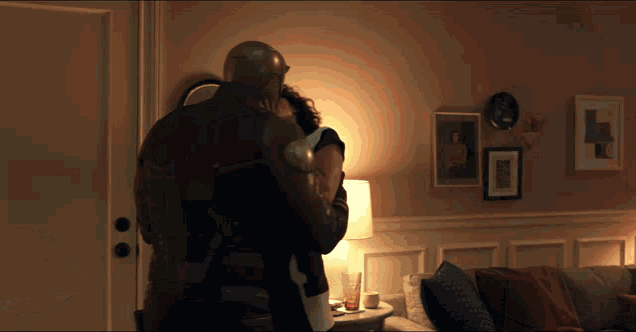
And to repeat, all three of these are just rules of thumb. It’s not hard to find examples of some beautiful writing that contributes absolutely nothing to the plot or story. But I feel safe saying it’s also not all that common.
Y’see, Timmy, if I trust my audience to figure this stuff out on their own, they’ll appreciate that trust. They’ll know I trusted them to fill in the blanks. And when they figure something out on their own, even a little thing, they’ll love what they’re reading even more.
So look back over your manuscript, go over some of those beats… and maybe give your readers the benefit of the doubt.
Next time, unless anyone’s got a better idea, I’d like to talk about this personal teleporter I invented.
Until then, go write.


